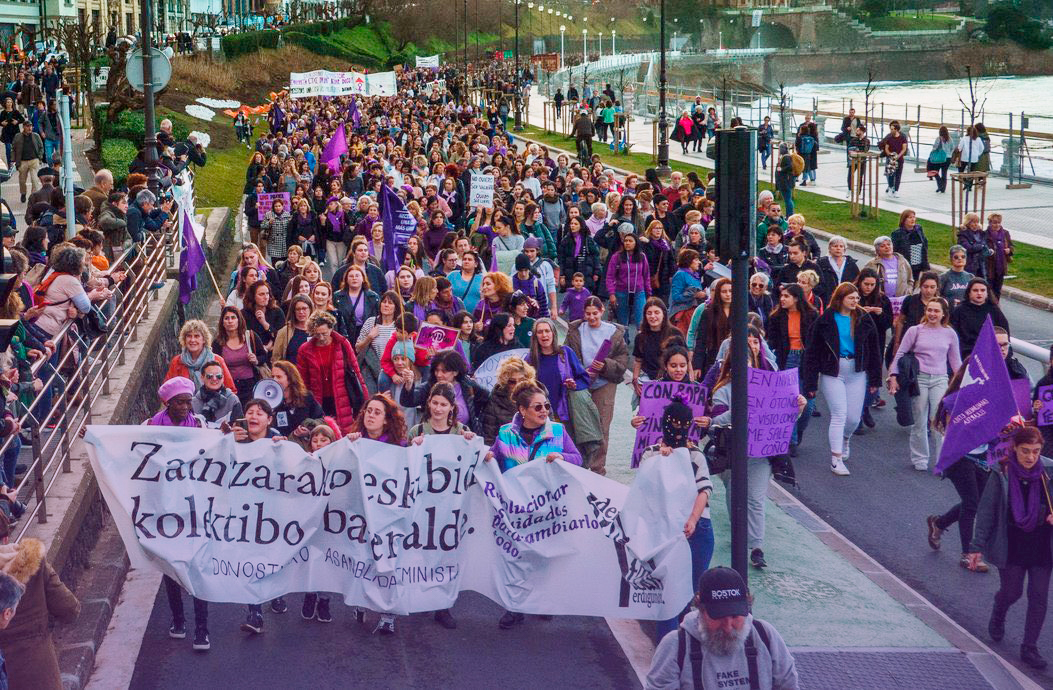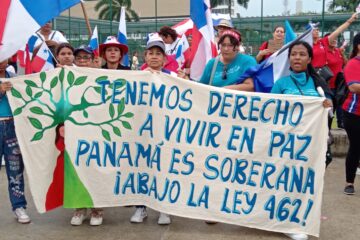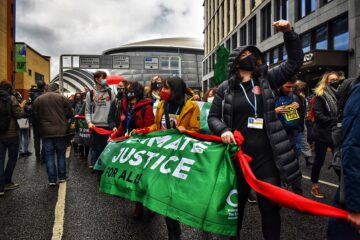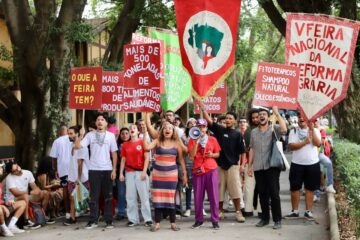When the pandemic emerged, we managed to create, with participation of several organizations and members of the Feminist Movement of the Basque Country (Euskal Herria), a coordination to place care in the center of the agenda. We were facing a critical moment in at least two senses. On one side, there was a big risk that COVID-19 would sharpen the care crisis that we, feminists, had already been denouncing. On the other side, we had the opportunity to question institutions and require radical transformations in the care organization model and, more than that, in the capitalist and patriarchal system in which we live. In addition, we saw that moment as crucial to create an inflection point in society as to awareness of care work. We needed to build strong and visible alliances to “place feminism in the fight against the pandemic”.
Since the beginning, the coordination ambitioned taking to the streets and consolidating everything that was being theorized and matured over the last years within the movement. So, in February 2022, we organized some events. Our starting point was the validation of the feminist genealogy of care, both regarding its landmarks and its concrete practices.
As from this genealogy, we understood that care is the basis of a dignified life: it is not an isolated aspect or something specific to a certain context, but a need at all times and in all spheres of life.
Care is indispensable to the sustainability of our bodies and our communities, in other words, to maintain and manage life, well-being, and health. The debate over what care is and how we want to organize it is deep and multi-dimensional. We are certain that changing care conception and model implies transforming the current social organization. Thus, care is a unique driving force for social transformation, with a huge political potential.
However, the current care regime is unfair, unbalanced, and limited. Going beyond temporary and territorial contexts, we, women, are the people who sustain life, and we do this under unequal, exploitative, and precarious conditions. With that, there is, in privileged positions (political and economic powers, public institutions, private companies, masculinity, whiteness…), a systematic evasion of the responsibility for care work. This is why we define care as something that has a concrete place and a dualistic structure, which demands a holistic approach based on a systemic view.
We started by imagining how the care system could work to meet needs in different moments and stages of life.
We talked about functional diversity, aging, and childhood. But we wanted to go beyond these moments and situations (within which a somewhat limited view of care concentrates) to be coherent with the focus of care as something that affects everyone, every day. And, with that, we started reflecting on what happens with care throughout life.
We held a discussion based on four strategic paths of transformation: collectivizing, revalidating, professionalizing, and advancing in a liberating care model. Finally, we highlighted the need for a cycle of mobilizations with a common agenda. As from this content, from claims, and from the common strategic agenda, we created a dossier that was published to be used as reference in feminist assemblies held in the territories.
After the meeting, held in the second half of 2022, we organized open assemblies in the territories, in which we stated that we needed to reach an agreement regarding care, discussing the proposal of a general feminist strike to socialize it. Thus, we introduced the dynamic “Denon Bizitzak Erdigunean” (“all lives in the center”, in Basque language) in February 2023, describing it as a medium- and long-term process aimed at promoting a social transition in the Basque Country.
Our objective is to form a national agreement, a social agreement. For that, we are creating alliances and finding support, seeking collaboration of social and union organizations in the Basque Country to join the process and this agreement. We claim a collective right to care. We are committed to guaranteeing all people’s right, throughout their lives, to give and receive care under dignified conditions and based on commitment. It goes way beyond situations of dependence and implies a capacity for deciding when, how, and of whom we want to take care, and, similarly, how and whom we want to take care of us, understanding this right in a collective, non-individualized way.
On April 23, 2023, more than 200 sisters met in a national assembly, with representatives of feminists from different parts of the Basque Country. We kept making decisions and defining the path we must follow. We are joining contributions to reach an agreement among us all and take it to the Basque and Navarre governments (the Basque Country is institutionally divided). The umbrella of this agreement will be the collective right to care. With these claims, we will call a general feminist strike in this Autumn/Winter season to make sure that our claims will be heard.
We really want to make these claims a reality, we want to create pacts. For that purpose, negotiation rounds will be conducted with different feminist organizations so they may meet with political agents involved in this dispute. Step by step, we identify urgencies and institutional changes, always keeping at sight the social agreement around a public and community care system in the Basque Country.
Through this path, we are going to bring discussions not only to institutions, but also to privileged people who do not have to take care of anyone. Guaranteeing leadership of the feminist movement throughout this process will be of essence. Alliances and intersections of struggles will make us stronger.

Ainhoa Olaso Sopela was born in 1996 and is a militant of the feminist movement in the Basque Country.




